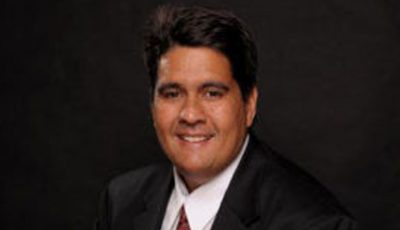China’s comeback kids
China faces a spirit issue. Its goals since 1978 when Deng Xiaoping left ideology for a guided free market economy—clearly accepting that some folks will get rich before others—has been attained. In just over 30 years, advances in science and technology fueled industrialization, along with a judicious nursing of its military might, leaving China on top of the development heap while groping for its soul.
Development in the global race is on to increase GDP per capita at a pace to fuel a consumption-production system at the expense of nature and people. This purely economic definition is doing much harm to the world’s natural systems and the ever-continuing creation of a democratic rather than a consumer culture. China’s soul hit a vacuum groping for role models.
Today, the comeback candidates are Christ, Mao, and the Buddha.
The Chinese who sees comfort in the Christ has the underground house churches that attract devotion because they defy authority, an understandable reaction. Pastor pounded pulpits trained to wear evangelical enthusiasm up their sleeves are zealously tied to the emotional allure of a cultic “savior” that takes away the “sins of the world” through communal fellowship that gathers adherents warmheartedly.
The communal comfort in Christianity fits into the Confucian ethos of family and the ethics that comes along. Its metaphors and belief-nets remain in the regal language of a redeemer under a defunct three-story universe, a “belief” in a heaven in the sky, and a penal colony under; it appeals to the elderly’s superstition but the secular and scientific young, at best, say, “huh?”
Mao is a tolerated uncle whose centralized dictates belong to, by his own measure, the 30 percent of his mistakes, but his dialectics aligns with the 70 percent that was right. It defined the conflict then prevailing between elite and worker, urban and rural, learned and the hoi polloi, though it hardly fits in the current harmonizing and collaborative thrust of the “reform and opening up” era.
The contradiction metaphor got the Chinese mind around the reality of differing perspectives, and Mao would have been regarded an undisputed statesman had he allowed his “a thousand flowers bloom” evolve into vive le difference rather than the divisive and humiliating confrontational deterioration of the Cultural Revolution.
Ironically, Mao represents recognition of the virtue of individual genius before it is straitjacketed into the commune. The assertive selfhood he exhibited is dubbed as a personality cult by the West, gobbled up by prejudiced contra Sino, but revered from a distance as his name is invoked, though without bothering with the details. The halls of academia quickly discard the mention of his name.
Which brings us to the Buddha. If Jesus belongs to the Ptolemaic cosmology of pre-Nikolaj Kopernik, and Mao brought down the elitist pretensions of the illuminati of academy to realistic levels, the saffron Buddha saunters with Mona Lisa’s enigmatic smile. Buddhists skew Christian theistic escapism and Mao’s dichotomy between decadent and progressive forces, favoring a psychology of a mind-full self.
Buddhists meditate not to escape from any situation, or the challenges of any given location, but to engage in the depths of the bottomless abyss of understanding one’s consciousness. This lends itself to the Sino orientation of rootedness in space rather than the Euro-journey in time. The Buddhists, however, tend to be abstract in their mindfulness against the practical activism that is a demand of cognition.
Pope Francis’ willingness to dialogue with China’s officially sanctioned Christian Church might be at the root of the recent pronouncement that Beijing will not shy away from creating its own Christianity with its own “Chinese characteristics,” similar to its socialist economics and communal politics of reform and opening up.
Kung Fu Tzu (Confucius) is not being dismissed. His ethos will be around awhile but making a comeback kid out of Jesus, Mao Zedong, or the Buddha is a backward step as each tradition inadequately encompasses China’s broiling spiritual hunger.
Since 1968, we minded exploited and battered Mother Earth, cognizant of her gracious support of the human specie. We segued into a secular spirituality without the hocus-pocus of theism though not a surrendered devotion to “all there is.” It was rather a decision to be free, to make choices, and own up to one’s decisions. We took to the ancient art of mindfulness and plumbed the depths of engagement in human affairs, like the recent Peoples Climate March, allowing Mother Earth’s wellbeing a fighting chance.
In the care of Mother Earth will China finds its soul.



























